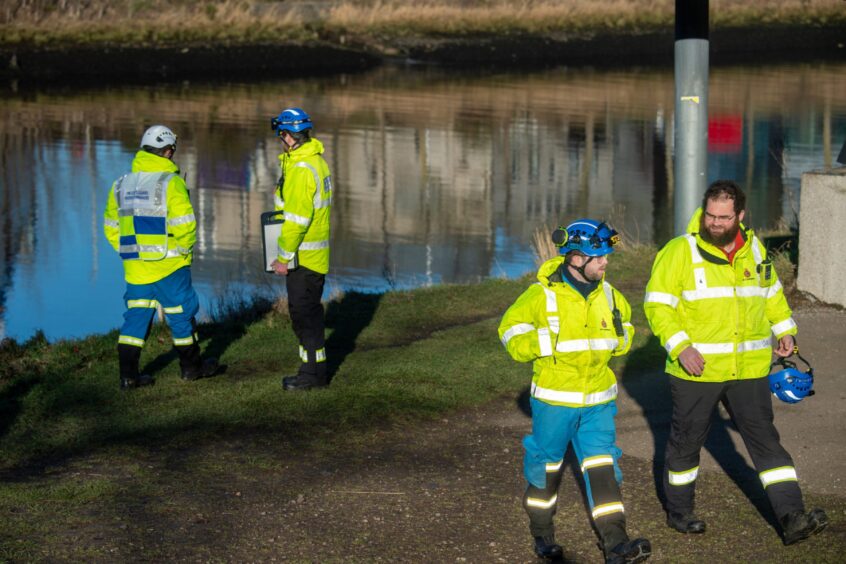News that the bodies of sisters Henrietta and Eliza Huszti had been recovered from the River Dee did not come as a shock. The saddest possible outcome to their mysterious disappearance had seemed inevitable for weeks.
Of course, the natural drive is to keep hope alive, especially in the darkest times, but confirmation that Henrietta and Eliza – two of a set of triplets – were dead was what we’d all been expecting, wasn’t it?
The sisters – originally from Hungary – made Aberdeen home for much of the decade they spent in the UK after leaving their home country of Hungary. Before their disappearance on January 7, they were leading what appeared to be perfectly normal lives. They were as inconspicuous as any of us.
Now, they are known – and mourned – across the city they made home, and beyond.
Along with extensive national news coverage, there has been endless social media commentary about the strange and upsetting case. People in Aberdeen have been quick to speak of their sadness.
The cliche about the people of the city and their emotional reticence has, once again, been destroyed.
I rarely trust the sincerity of grief when it’s expressed on social media but I feel the sorrow in so much that’s been written and said about the sisters’ deaths.
What is it about the Huszti sisters that touched the people of Aberdeen?
I wonder what it is about this particular case that has so moved people. Each year, we read countless news reports of unusual deaths in which there are “no suspicious circumstances”.
We understand what those three words mean. But these stories don’t haunt us as Henrietta and Eliza’s is now doing.
It would be wrong, I think, to deny that the novelty of this case is key. The circumstances provoke disturbing but, undeniably, intriguing questions.
We cannot help but wonder, agonising though it is to do so, what was said between the sisters in their final hours. Was there something – some tiny thing – that could have changed the course of history which would have stopped them talking that walk down to the river?
And, having considered all the miserable possibilities, we can only hope that when the end came, it did so swiftly.
The circumstances – two young women dying 1,600 miles from their siblings and parents – compel us to think of our own family relationships. The very idea of losing a child is unbearable in itself. To lose two and to do so in such circumstances is doubly cruel.
As we think of our parents or children, we may find our grief over the deaths of Henrietta and Eliza becomes more real.
When they went missing a month ago, the sisters were ghostly figures on a still from a CCTV film, the central characters in a real-life mystery story which might twist and turn.
The response to the tragedy has been profoundly emotional
Now, Henrietta and Eliza remind us of the fragility of it all. They prompt us to wonder how we might cope with the loss with which their loved ones are now beginning to deal.
The response to this tragedy from people in Aberdeen has been profoundly emotional.
Many have gathered to pay their respects and leave flowers near the area where the sisters’ bodies were recovered. But it has been practical, too. Thousands of pounds have been donated to a fund set up to return the sisters’ bodies to Hungary.
Loss changes people. It also changes places. The Aberdeen of January 7 and the Aberdeen of today are different. The atmosphere has been rearranged, the air made heavier, the streets made darker.
Things will return, in time, to normal but for now, the impact of the deaths of Henrietta and Eliza on the city, on the community, is palpable.
In time, we will learn more about these sisters. A Fatal Accident Inquiry should provide some answers. Our interest in finding out more is not prurient. We want to know because we care.
The memory of Henrietta and Eliza will fade over time. New tragedies will occur and we will engage with those.
But anyone who has followed, first with hope and then with anguish, the sisters’ story will never fully forget those terrible moments last week when hope was extinguished.
Today, the ghosts of Henrietta and Eliza Huszti move through Aberdeen, gently brushing against people as they pass.
Euan McColm is a regular columnist for various Scottish newspapers


Conversation